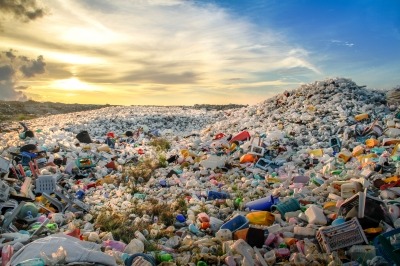A research conducted by sustainable materials innovator TIPA has revealed that half of the British public want clearer labelling on plastic packaging to avoid further waste in retail and grocery sectors

Image: Over 1 in 5 consumers admit that they throw flexible packaging in the recycling bin. Photo: Courtesy of andhu/FreeDigitalPhotos.net.
TIPA said that the following a wave of eye-opening documentaries and news items highlighting the environmental impact of plastic pollution, public awareness of avoidable plastic waste has highly improved.
Service industry has been closely examined to reduce its plastic waste and ensure consumers that they’re making eco-friendly purchasing decisions. Many consumers are already taking an active stance in identifying packaging formats that are fit for recycling.
TIPA CEO Daphna Nissenbaum said: “It’s great to see that public yearning is driving the service industry to rethink its relationship with flexible plastic packaging, which is often non-recyclable. We’re now at a point where people better understand the damage of plastic waste and are keen to reduce their carbon footprint but aren’t always sure how best to go about it.
“This often leads people to “play it safe” with packaging they aren’t sure is recyclable, due to unclear or unlabeled packaging, and end up using the wrong receptacles. This can cause unnecessary strain on recycling centers that have to sift through hundreds of tons of non-recyclable matter.”
In the TIPA study, customers are asked about flexible plastic packaging which are used for many single-use products and are mostly non-recyclable. More than half (54%) of British shoppers answered that they check labelling before disposing packaging items in the regular refuse bin.
Over 1 in 5 consumers admit that they throw flexible packaging in the recycling bin since they are not aware that it wasn’t eligible for recycling.
TIPA reported that approximately 4 in 10 consumers (39%) think retailers should have a ‘plastic-free’ aisle in every store and more than 29% consumers even think that every retail store should be completely ‘plastic-free’.
The company said that the introduction of clearer labeling showing which packaging does and does not contain plastic would help consumer to know that they and their chosen brands are acting responsibly with plastic.
In the context of using compostable packaging formats, approximately 46% consumers think compostable packaging is under-utilized by brands and approximately 49% of shoppers welcome the introduction of labeling to identify that packaging is compostable.
Nissenbaum added: “The majority of people just want to do the right thing in a way that fits their busy lives. It is therefore incumbent on stakeholders in retail, groceries and the wider supply chain to clearly demarcate which packaging is ‘plastic-free’ and which is suitable for recycling.
“By supporting consumers in this way, they will inspire greater brand trust among a public whose conscientiousness with plastic waste is only going to grow further in the future.”
